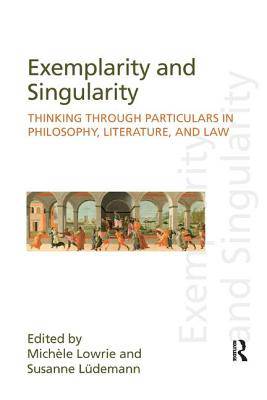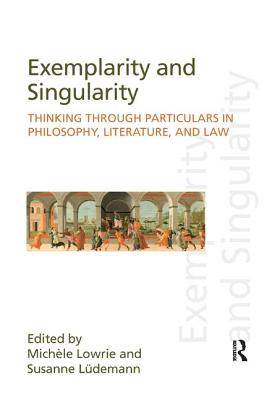
- Retrait gratuit dans votre magasin Club
- 7.000.000 titres dans notre catalogue
- Payer en toute sécurité
- Toujours un magasin près de chez vous
- Retrait gratuit dans votre magasin Club
- 7.000.000 titres dans notre catalogue
- Payer en toute sécurité
- Toujours un magasin près de chez vous
Exemplarity and Singularity
Thinking through Particulars in Philosophy, Literature, and Law
Description
This book identifies and follows a strand in the history of thought - ranging from codified statutes to looser social expectations - that uses particulars, and more specifically examples, to produce norms. Much intellectual history takes ancient Greece as a point of departure. But the strand of thought followed here finds its home, if not its origin, in Rome. The practice of exemplarity is historically rooted firmly in ancient Roman rhetoric, oratory, literature, and law, genres that also secured its transmission. Tracing the role of exemplarity from Rome through to its influence on literature, politics, philosophy, psychoanalysis and law, it shows how Roman exemplarity has subsisted, not only as a figure of thought, but also as an alternative way to organize and to transmit knowledge.
Spécifications
Parties prenantes
- Editeur:
Contenu
- Nombre de pages :
- 226
- Langue:
- Anglais
- Collection :
Caractéristiques
- EAN:
- 9781138241749
- Date de parution :
- 07-06-17
- Format:
- Livre broché
- Format numérique:
- Trade paperback (VS)
- Dimensions :
- 156 mm x 234 mm
- Poids :
- 326 g






